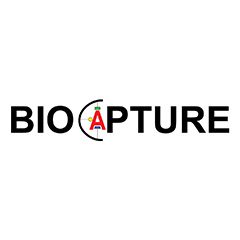Molecularly imprinted polymer microspheres for cancer biomarkers
Host Institute
WestCHEM, Department of Pure & Applied Chemistry, University of Strathclyde, Glasgow
Host Country
Scotland, UK
Start date
During the period November 1st 2016 – October 1st 2017
The candidate will be employed in the Department of Pure & Applied Chemistry (Faculty of Science) at the University of Strathclyde in Glasgow, and enrolled in the Department’s PhD program under the direct supervision of Professor Peter Cormack.
Project description
At the University of Strathclyde we have a special interest in the design and synthesis of molecularly imprinted polymers (MIPs) that are able to capture protein and protein-derived (i.e., peptide) biomarkers of disease from complex biological fluids for the purposes of disease diagnosis and detection. In respect of the very aggressive disease of small cell lung cancer (SCLC), we wish to build upon very recent and exciting preliminary results to develop unique affinity tools that fill a gap in biomarker specific assays for SCLC. Whilst working very closely with our BioCapture partners at all times, the role of the Strathclyde group will be to synthesise MIPs in physical formats that are optimised for the enrichment of low abundant peptides in state-of-the-art, minituarised chemical separations. Molecularly imprinted polymer microspheres, typically synthesized via free radical polymerisations under precipitation polymerisation conditions, are especially attractive in this regard. The imprinted polymers produced will be characterized in a variety of ways (e.g., SEM), with optimized materials being supplied to collaborating partners within BioCapture for further detailed evaluation.
In addition to the extensive training in polymer chemistry and researcher professional development (RPD) that will be provided by Strathclyde, the PhD student will have opportunities to benefit from research secondments in the laboratories of collaborating BioCapture partners. These academic and industrial partners are located in Norway (University of Oslo), Sweden (Linnaeus University), South Africa (ReSyn Biosciences), UK (Proteome Sciences) and Italy (University of Pavia); through secondments, the PhD student will gain additional research knowledge and hands-on experience in relevant research areas including, but not limited to, analytical chemistry, proteomics, magnetic materials and computational chemistry. The secondments will allow the PhD student to oversee and work on the implementation of the materials synthesised in Glasgow, and gain insights into other academic and industrial worlds.
The successful candidate will join the Cormack Polymer Group, and will benefit from a vibrant research environment where the focus is on the development of functional organic polymers for a range of practical applications. There will be opportunities for teaching in undergraduate laboratories, the mentoring of less-experienced researchers in the Cormack Group and expanding theoretical and practical knowledge through the extensive postgraduate training programme at Strathclyde. The PhD programme at Strathclyde is for a period of 36 months. In addition to the PhD degree, the successful candidate can expect to graduate with a Postgraduate Certificate in Researcher Professional Development (PG Cert RPD).
Group description
The Strathclyde team, headed by Professor Peter Cormack, comprises a group of around 12-15 postdoctoral, postgraduate and undergraduate polymer chemists dedicated to the synthesis and applications of functional organic polymers. Strathclyde brings a wealth of experience in polymer synthesis, and the chemical modification of polymers, built up over many years, to BioCapture. The Strathclyde team has a strong profile in the area of molecular imprinting (over 15 years hands-on experience and >50 imprinting publications to date) and has made a number of important contributions to the field. Professor Cormack has supervised over 30 PhD students to the successful completion of their studies and will serve as the mentor and primary supervisor of the PhD candidate.
Further information about Professor Cormack
Institute description
The University of Strathclyde in Glasgow is a leading, international technological University that dates its history back to 1796. It was the Times Higher UK University of the Year in 2012/13 and UK Entrepreneurial University of the Year in 2013/14. The Department of Pure & Applied Chemistry (PAC) at the University of Strathclyde in Glasgow has one of the largest chemistry research schools in the UK. Research topics range from analytical chemistry to materials science, and from biological chemistry to forensic chemistry. Research is well-supported by government research councils, industry, the EU and charitable foundations. Extensive networks of national and international collaborations exist on all fields. In the most recent research assessment exercise (REF 2014), the Department (as WestCHEM, the joint Research School with the University of Glasgow) was ranked in the top four Chemistry Departments in the UK for research power. The three Horizon 2020 ITNs that have been awarded thus far to PAC only add to the quality of the vibrant, interdisciplinary research environment in which the PhD candidate can excel.
Ideal candidate
We are looking to appoint an outstanding, highly motivated candidate who meets the global MSCA eligibility criteria and who will bring the following to Strathclyde: excellent first degree in Chemistry or a closely-related subject; intellectual curiosity; problem solving skills; skilled in preparative organic chemistry, with experience in synthetic polymer chemistry being preferred but not essential; passion and enthusiasm for polymer chemistry and materials science; outstanding communication and interpersonal skills; honesty, reliability and integrity; time management skills.
Working conditions and benefits
The successful candidate will be an employee of the University of Strathclyde and will be paid in accordance with the MSCA rules. The contract period will be for 36 months.
Contact
For more information on this position, contact the hiring party: Prof. Peter Cormack.
E-mail: Peter.Cormack@strath.ac.uk
Phone: +44-(0)141-548 4951
